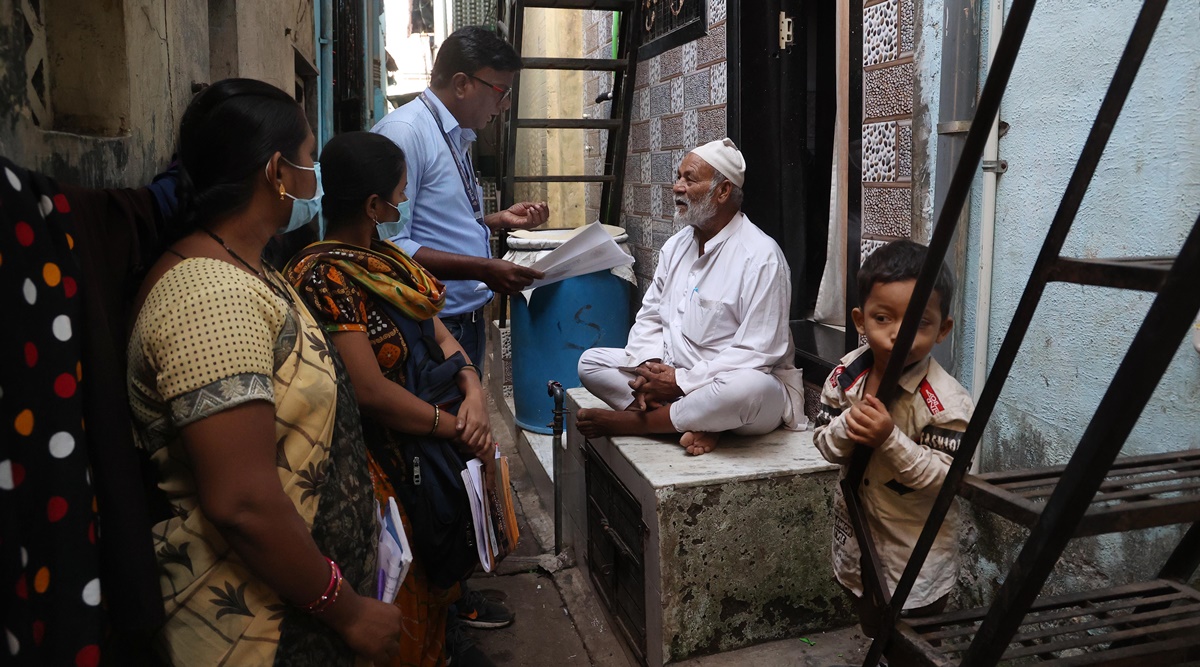
Public health officials in the nation are concerned about a measles outbreak in Mumbai. In the last two months, the city has reported more than 200 cases, and at least 13 children have died as a result.
Measles
- Measles is a virus that is extremely contagious.
- The paramyxovirus family virus that causes measles often spreads through direct contact and the air.
- The respiratory tract becomes infected by the virus, which then spreads throughout the body.
- There is no evidence that measles affects animals; it is a human disease.
Signs and symptoms
- A high fever, runny nose, coughing, red and watery eyes, and little white patches within the cheeks can appear in the early stages of measles.
- Blindness, encephalitis, severe diarrhoea and associated dehydration, ear infections, or severe respiratory infections including pneumonia are among the most significant side effects.
At risk
- Young children who have not received the measles vaccine are most susceptible to the disease and its fatal complications.
- Pregnant women who are not immunised are also at danger.
- Anyone who is non-immune (who has not received a vaccination or who received a vaccination but did not develop immunity) can contract the disease.
Transmission:
- Measles is one of the world’s most contagious diseases.
- It is spread by coughing and sneezing, close personal contact or direct contact with infected nasal or throat secretions.
Treatment:
- For the measles virus, there is no specialised antiviral medication.
- Through supportive care that promotes healthy nutrition, appropriate fluid intake, and treatment of dehydration with the WHO-recommended oral rehydration solution, severe consequences from measles can be decreased.
- Two doses of vitamin A supplements should be given to every child who has been diagnosed with measles.
Prevention:
- Key public health measures to lower measles mortality worldwide include routine childhood vaccination against the disease and massive immunisation drives in nations with high case and death rates.
- Measles vaccination is frequently given along with the rubella and/or mumps shots.
Sudden outbreak of Measles in India
- Backsliding in the universal immunisation programme during the pandemic: According to all indications, the outbreak appears to have been brought on by a relapse in the universal immunisation programme during the pandemic.
- Data from the state government show that only 41% of Mumbai’s eligible children have received a measles vaccination.
- Parents are allegedly displaying reluctance to continue their children’s vaccination schedule after they were feverish after receiving the first shot.
- ASHA employees and other overworked public health officials have also had to deal with vaccine reluctance.
Efforts by Government
- Mission Indradhanush: The Mission Indradhanush effort of the Centre has increased immunisation coverage and decreased intershot intervals recently.
- Low coverage during the past two years: Research from WHO and UNICEF has revealed that immunisation programmes, particularly those focusing on DPT (diphtheria, pertussis, and tetanus) and measles, have suffered over the previous two years in low- and middle-income countries, including India.
- At least 100,000 youngsters missed their vaccinations due to the movement restrictions early in the pandemic, according to data from the National Health Mission’s computer system.
- India has accelerated immunisation following the pandemic: According to anecdotal evidence, India’s campaign for universal immunisation increased toward the end of the pandemic. However, measles is a very contagious illness. Experts had previously issued a warning that even a 5% decline in vaccination rates can compromise herd immunity and cause an outbreak. Their fears are coming true, as evidenced by the disease’s resurgence in Mumbai.
Conclusion
Studies have indicated that during the epidemic, kid immunisation suffered as attention was diverted to adult vaccination. Governments must carefully assess at the local level how many children escaped the immunisation net during this time after the pandemic peaked and take corrective action.
